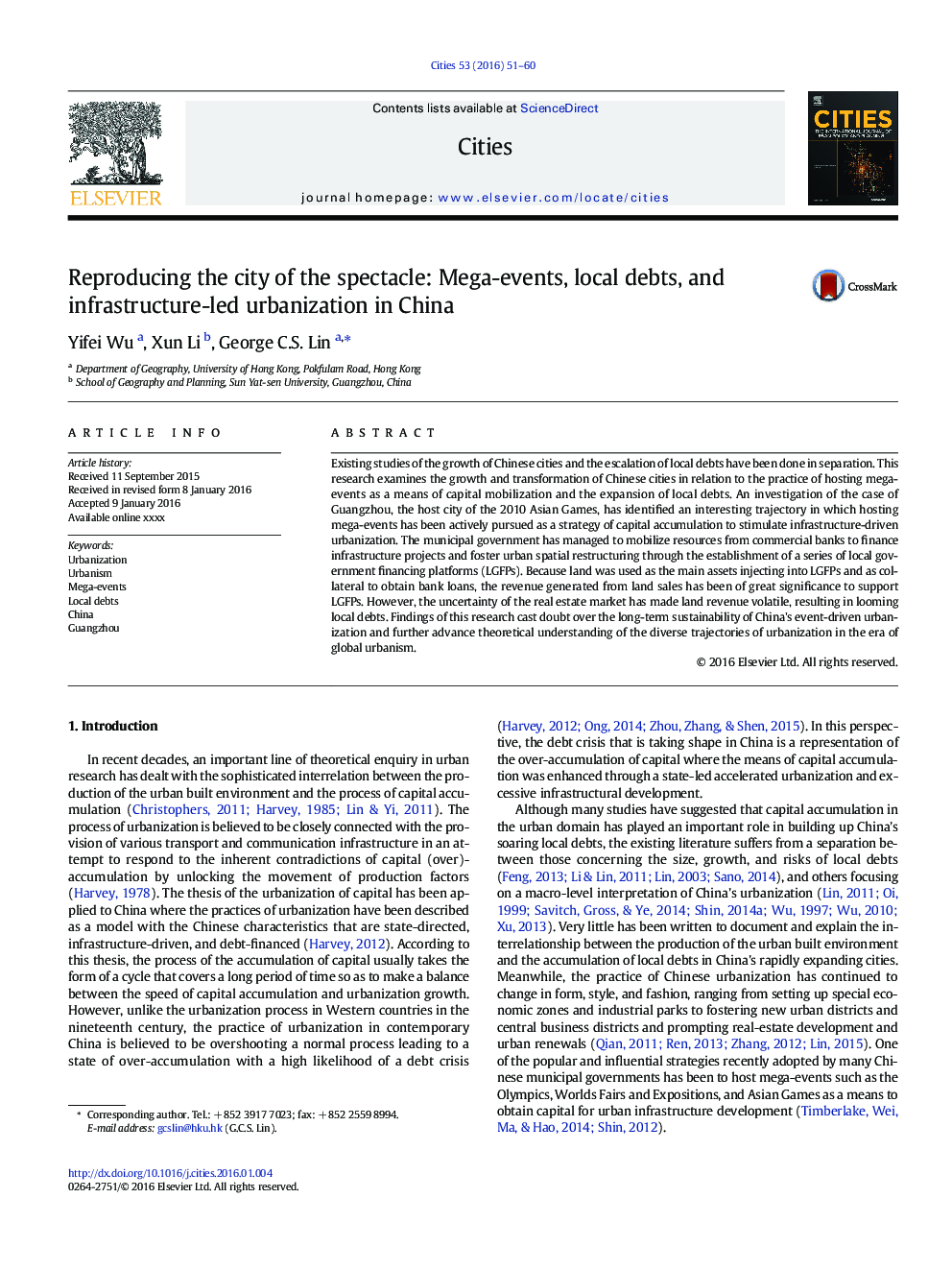| Article ID | Journal | Published Year | Pages | File Type |
|---|---|---|---|---|
| 7418178 | Cities | 2016 | 10 Pages |
Abstract
Existing studies of the growth of Chinese cities and the escalation of local debts have been done in separation. This research examines the growth and transformation of Chinese cities in relation to the practice of hosting mega-events as a means of capital mobilization and the expansion of local debts. An investigation of the case of Guangzhou, the host city of the 2010 Asian Games, has identified an interesting trajectory in which hosting mega-events has been actively pursued as a strategy of capital accumulation to stimulate infrastructure-driven urbanization. The municipal government has managed to mobilize resources from commercial banks to finance infrastructure projects and foster urban spatial restructuring through the establishment of a series of local government financing platforms (LGFPs). Because land was used as the main assets injecting into LGFPs and as collateral to obtain bank loans, the revenue generated from land sales has been of great significance to support LGFPs. However, the uncertainty of the real estate market has made land revenue volatile, resulting in looming local debts. Findings of this research cast doubt over the long-term sustainability of China's event-driven urbanization and further advance theoretical understanding of the diverse trajectories of urbanization in the era of global urbanism.
Related Topics
Social Sciences and Humanities
Business, Management and Accounting
Tourism, Leisure and Hospitality Management
Authors
Yifei Wu, Xun Li, George C.S. Lin,
